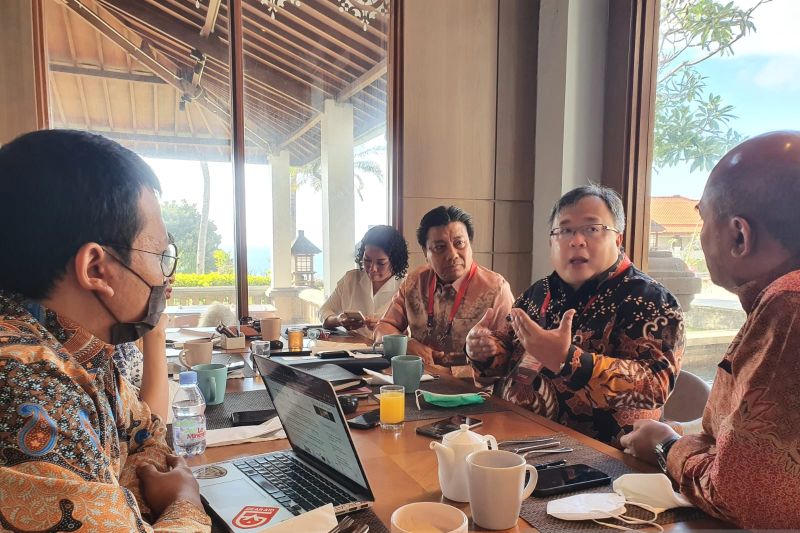
The meeting between G20 leaders in November 2022 must pay attention to and discuss the energy transition in developing countries, lead co-chair of T20 Indonesia, Bambang Brodjonegoro, has said.
"Energy transition for developing countries is an expensive, severe process that requires much sacrifice," he explained during an interview session here on Tuesday.
“So, automatically, there should be an effort to give more attention to developing countries so that they can conduct the energy transition well," he said.
Green financing is necessary so that power plants in developing countries can be transformed into new and renewable energy-based power plants and provide energy at affordable prices.
"New and renewable energy may already be sustainable and reliable, but it is not yet affordable because, on average, it is still too expensive for developing countries," he noted.
Group 20 or G20 is a multilateral cooperation group that comprises 19 countries and the European Union (EU). T20 is a cooperation forum for think tanks and researchers across G20 member countries.
Related news: ETWG Bali a foundation in expediting energy transition: Official
The Indonesian T20 Presidency has provided recommendations for G20 leaders so that they can discuss fair energy transition for developing countries.
"This is because energy transition is heavily encouraged by European countries since they have the purchasing power," Brodjonegoro said.
European countries can purchase new and renewable-based electricity since they already have green financing, he highlighted.
The schemes that can be utilized to finance the energy transition in developing countries, including Indonesia, comprise blended finance or mixing commercial, conventional finance, state budget, and philanthropic donations.
Through these schemes, the cost of funds for producing new and renewable energy can be brought down and it can be provided at a more affordable price to the people.
He also recommended that electricity prices in Indonesia be made more flexible and not set in a fixed manner during the inking of power purchase agreements (PPAs).
"Usually, the price of electricity that comes from new and renewable energy is high at the start, but then it becomes lower in the future," Brodjonegoro explained.
"This cannot be covered by PPA, so there must be a mindset change to make the price more dynamic," he added.
Related news: G20 agree on Bali Compact for accelerating energy transition
Related news: B20 task force stresses just, inclusive energy transition


















